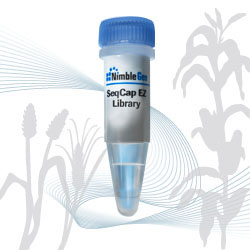The dog is unique in many perspectives. It has been accompanying us, humans, for several thousands of years and has a remarkable phenotypic diversity. As an enjoyable pet, the dog plays a central role in many lives, but its role in biomedical research should not be overlooked. The dog has a high frequency of spontaneously occurring genetic diseases and many of them share clinical and laboratory abnormalities with human diseases. When studying these genetic disorders, one typically has the choice between indirect approaches like genome-wide association studies (GWAS) and more direct, sequencing based approaches like whole exome and whole genome sequencing (WES and WGS, respectively).
Since the first reported study on WES in 2007, well over 5000 papers have been published applying this technique. WES is a cost-efficient approach to selectively sequence the coding regions of the genome. This approach allows the identification of most functional variation without the high costs associated with WGS. Unfortunately, predesigned and validated kits were only commercially available for human and mouse and scientific reports of WES on other animals are scarce. As our research focuses on the identification of disease causing mutations in the dog, we recently developed three canine WES designs. With sizes varying between 53 and 152 Mb, the same flexibility as commercial WES designs for humans is guaranteed, while in addition, the largest design, called the exome-plus, is unique in terms of completeness.
In this webinar, the development and performance of these designs will be discussed in-depth, as well as the effect of various choices made during the bait designing process. The unique breeding history of the dog that shaped the phenotypical diversity, also affects the identification of disease-causing mutations. While the advantage for GWAS was already demonstrated in 2007, we recently showed that this equally applies for direct sequencing approaches like WES.
Speaker

Bart Broeckx, PhD, Postdoctoral Researcher, Laboratory of Pharmaceutical Biotechnology, Ghent University
Bart Broeckx, PhD, Postdoctoral Researcher, Laboratory of Pharmaceutical Biotechnology, Ghent University
Dr. Broeckx received his undergraduate and Master’s degrees in Veterinary Medicine from Ghent University, and his PhD from the Laboratory of Pharmaceutical Biotechnology in 2015. He has extensive research and informatics experience, and has authored or co-authored 20 research papers in canine disease research.
Who Should Attend?
- Genetics and Genomics Researchers
- Principle Investigators
- Laboratory Scientists
- Clinical and Translational Researchers
- Cancer/Oncology Researchers
- Genome Center Directors
- R&D Directors, Managers in Pharmaceutical and Biotechnology Companies
- Agricultural Genetic Researchers
Xtalks Partner
Roche
Roche NimbleGen is an innovator in the life sciences market focused on research activities and manufacturing target enrichment probe pools for DNA sequencing. Capitalizing on the efficiencies inherent with parallel enrichment, researchers can now design economical, high throughput, and time-saving next-generation sequencing experiments. Next-generation sequencing combined with Sequence Capture probe pools offers researchers a clearer understanding of genomic structure and function in order to understand the impact of genes on biological processes. We are part of the innovations in sequencing solutions for life science research, now and in the future.
You Must Login To Register for this Free Webinar
Already have an account? LOGIN HERE. If you don’t have an account you need to create a free account.
Create Account





